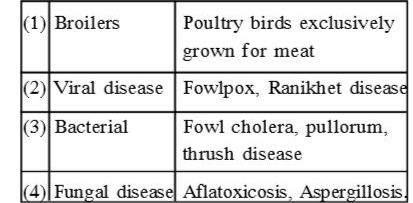Which of the following is incorrect with respect to reduction division ?
Interkinesis is short lived phase which is followed by prophase-II, a much simpler phase than prophase-I
Diakinesis is marked by terminalization of chiasmata
Pairing of homologous chrommosome occurs in prophase-I
Spliting of centromere of each chromosome occurs in anaphase-I
The correct Answer is:D
To solve the question regarding which statement is incorrect with respect to reduction division (meiosis), we will analyze each option provided in the context of meiosis.
1. Understanding Reduction Division (Meiosis):
- Meiosis is a type of cell division that reduces the chromosome number by half, resulting in the formation of haploid gametes from a diploid cell.
2. Analyzing the Statements:
- Statement 1: "Interkinesis is a short-lived phase which is followed by prophase 2, much simpler than prophase 1."
- Analysis: This statement is correct. Interkinesis is indeed a short resting phase between meiosis I and meiosis II, and prophase II is simpler than prophase I.
- Statement 2: "Diakinesis is marked by terminalization of chiasmata."
- Analysis: This statement is also correct. Diakinesis is the final stage of prophase I where the chiasmata (points of crossing over) become terminalized.
- Statement 3: "Pairing of homologous chromosomes occurs in prophase 1."
- Analysis: This statement is correct. The pairing of homologous chromosomes, known as synapsis, occurs during prophase I.
- Statement 4: "Splitting of centromeres of each chromosome occurs in anaphase."
- Analysis: This statement is incorrect. The splitting of centromeres occurs during anaphase II, not anaphase I. In anaphase I, homologous chromosomes are separated, but the sister chromatids remain attached at their centromeres.
3. Conclusion:
- The incorrect statement with respect to reduction division is the fourth statement: "Splitting of centromeres of each chromosome occurs in anaphase."
Final Answer:
The incorrect statement regarding reduction division is: "Splitting of centromeres of each chromosome occurs in anaphase."
---
- Meiosis is a type of cell division that reduces the chromosome number by half, resulting in the formation of haploid gametes from a diploid cell.
- Statement 1: "Interkinesis is a short-lived phase which is followed by prophase 2, much simpler than prophase 1."
- Analysis: This statement is correct. Interkinesis is indeed a short resting phase between meiosis I and meiosis II, and prophase II is simpler than prophase I.
- Statement 2: "Diakinesis is marked by terminalization of chiasmata."
- Analysis: This statement is also correct. Diakinesis is the final stage of prophase I where the chiasmata (points of crossing over) become terminalized.
- Statement 3: "Pairing of homologous chromosomes occurs in prophase 1."
- Analysis: This statement is correct. The pairing of homologous chromosomes, known as synapsis, occurs during prophase I.
- Statement 4: "Splitting of centromeres of each chromosome occurs in anaphase."
- Analysis: This statement is incorrect. The splitting of centromeres occurs during anaphase II, not anaphase I. In anaphase I, homologous chromosomes are separated, but the sister chromatids remain attached at their centromeres.
- The incorrect statement with respect to reduction division is the fourth statement: "Splitting of centromeres of each chromosome occurs in anaphase."
The incorrect statement regarding reduction division is: "Splitting of centromeres of each chromosome occurs in anaphase."
Similar Questions
Knowledge Check
- Question 1 - Select One
Which of the following is incorrect with respect to zygote?
AFirst cell of the sporophytes generationBVital link between two successive generationsCAlways diploidDAlways divide by meiotic division - Question 2 - Select One
Which of the following is incorrect with respect to HIV infection?
AHIV/AIDS is not spread by mere touch or physical contact, it speads only through body fluids.BMacrophages continue to produce virus and, in this way, act like an HIV factorCHIV enters into the helper T-lymphocytes (TH), replicates, and produces progeny virus which leads to a progressive decrease in the number of helper T-lymphocytes in the body of infected person.DHIV does not get transmitted through organ transplant from an HIV infected person. - Question 3 - Select One
Which of the following option is incorrect with respect to ionic radii ?
ATi4+<Mn2+B.35Cl−<37Cl−CK+>Cl−DP3+<P5+
which of the following statements is incorrect with respect to pectinases ?
View SolutionWhich of the following statement is incorrect with respect to metallic or electronic conductivity
View SolutionWhich of the following statement is incorrect with respect to the histology of alimentary canal ?
View SolutionWhich one of the following matches is incorrect with respect to placentation ?
View SolutionWhich of the following statement is incorrect with respect to sericulture -
View Solution


